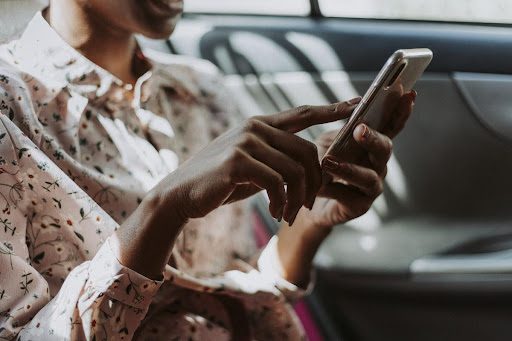One of the first things people do when they wake up is check their phones. Similarly, the last thing many people do before bed is, once again, check their phones. This begs the question: how much of this usage is by choice, and how much is by repeated involuntary behaviors?
Essentially, many people are addicted to their cell phones. Who could blame them? Cell phones are such a prevalent part of everyday life in modern society that it is nearly impossible to escape this dependency. However, there are things that can be done to regulate cell phone usage so that it doesn’t impact a person’s mood and even their addiction recovery.
The Harmful Effects of Cell Phone Usage
While cell phones have certainly made life easier for many (consider Zoom meetings, ordering food, watching movies, etc.), they also can cause significant harm to the user’s health. Particularly if a person just starts drug or alcohol treatment, they will learn that cell phone usage is discouraged, even locked away, to help them truly focus on recovery. Below are some of the ways in which cell phone usage can be hazardous to one’s health.
- Anxiety can develop or worsen: Due to the instant, all-encompassing nature of cell phones, being accessible to everyone at all times can cause significant anxiety. Having complete alone time is a necessity for everyone. Cell phones make it incredibly difficult to have this alone time because texts, calls, and direct messages can reach someone at any moment of the day, preventing the possibility of ever having alone time.
Social media apps such as Instagram and Facebook can cause significant anxiety for users as well. For many, the plethora of edited, hyper-physically fit pictures of males and females on these platforms can cause one to compare themselves to these seemingly successful others. With these apps, it is easy to present false realities to the world. This can easily promote unhealthy practices of comparison, causing anxiety due to not being “good enough.”
- Depression can occur: Cell phones are excellent in that they can allow one to do almost anything they want. However, this makes it easy to spend hours on end using a cell phone. Many people end up staying awake nearly all night due to the distraction of their phones. Even if they do not stay up late, the light from using their phones right before bed can cause sleep disturbances, causing insomnia.
It is well known that sleep plays an essential role in a person’s overall health. Sleep also affects an individual’s mood as well. Continuous lack of necessary sleep, otherwise known as insomnia, can lead to lasting depression.
- Stress may be a side effect: Even though spending time on a cell phone may feel as if it is a relief, it can actually cause significant stress. Through always having something to do on a cell phone, one never truly gets rest. Rest, both mental and physical, is necessary for everyone during their everyday lives. By doing so, individuals can receive the mental clarity needed to get through their day. Chronic cell phone use that prevents one from resting can cause significant amounts of stress.
How to Keep Your Cell Phone from Ruling Your LIfe
Though not using a cell phone so often can be difficult, it is not impossible to begin trying. Similar to building healthier habits to combat addiction, the same can be done for cell phone use. Below is a list of four things to try whenever the urge to use a cell phone arises.
#1. Journal your feelings. Rather than turning attention outward to cell phones, it is always more helpful to turn inward and check in with your body and feelings. Doing so can help to become more with oneself while also forming a new, healthier habit.
#2. Practice deep breathing. Feelings of anxiety can be subsided through taking repeated, deep breaths. Practicing this instead of turning to a cell phone can help to restore calmness within the nervous system. Anxiety can cause a person’s nervous system to consistently remain in “fight or flight” mode. Deep breathing can restore balance with the nervous system by reminding the body that “fight or flight” mode is not necessary all the time.
#3. Take a bath or shower. When turning to a cell phone to try to destress, it can be helpful to have an alternative, more helpful way to unwind. Simply taking a relaxing, long bath or shower can be a wonderful way to relax. Whether it be first thing in the morning or right before bed, feeling the warm, soothing water is such a comforting sensation.
#4. Engage with your surroundings. Life truly is filled with daily, simple pleasures, . Only but they can only be experienced when one stops and looks around. Whether surrounded by others or all alone, stopping and noticing the your surroundings can be both gratifying and entertaining. Rather than focusing on a cell phone, try to begin focusing on the beauty around you.
Frequent cell phone use can cause depression, anxiety, and stress for many users. For those on their journey to recovery, this can serve as a major threat to their sobriety. Recovery is difficult enough on its own, but when adding the negative effects of cell phone usage, recovery can seem impossible. At Pinelands Recovery Center of Medford in New Jersey, we want to remind you that there is always hope. We are committed to providing the best treatment possible for you to overcome your struggles and grow into the person you wish to be. To get help today, call us at (877) 557-5372.
